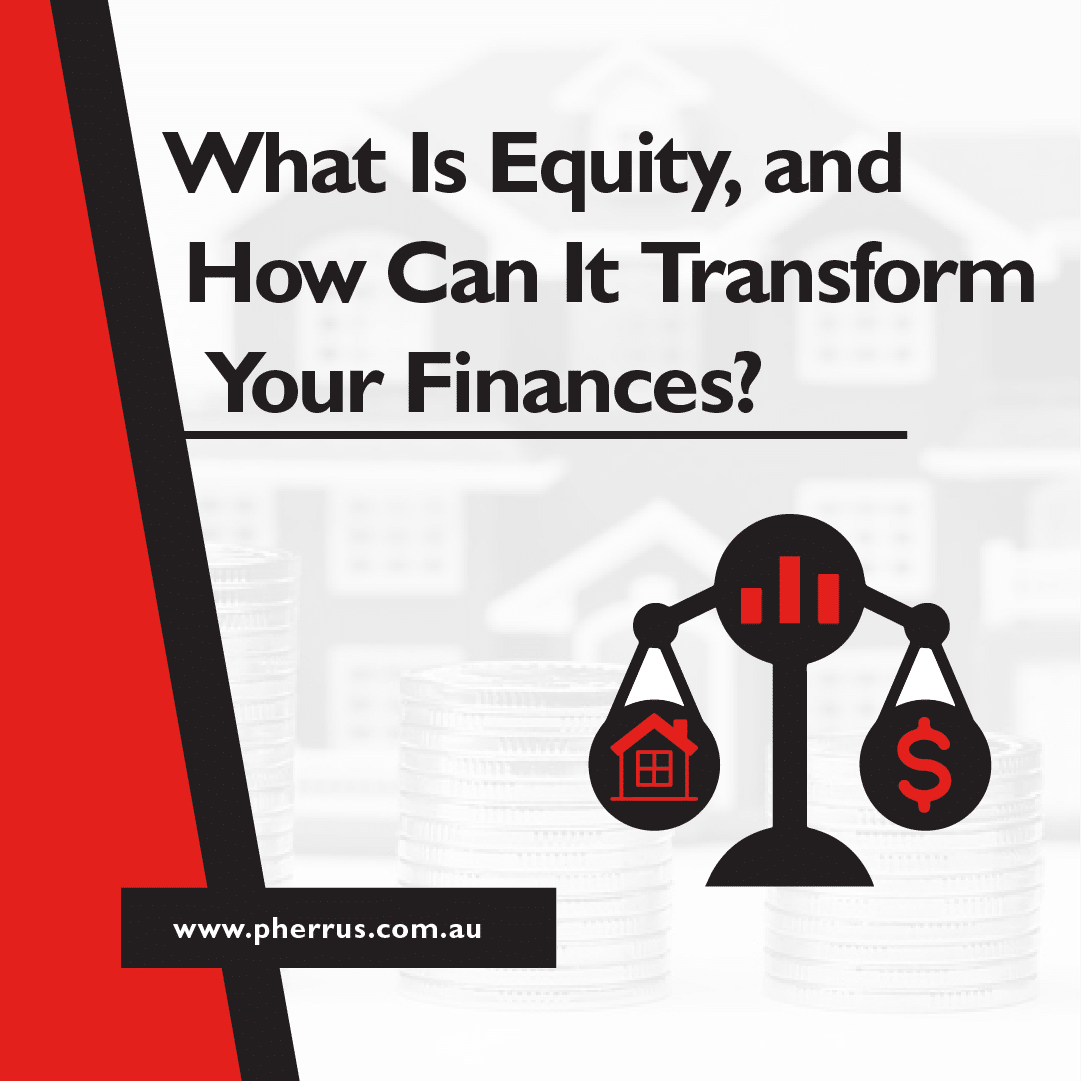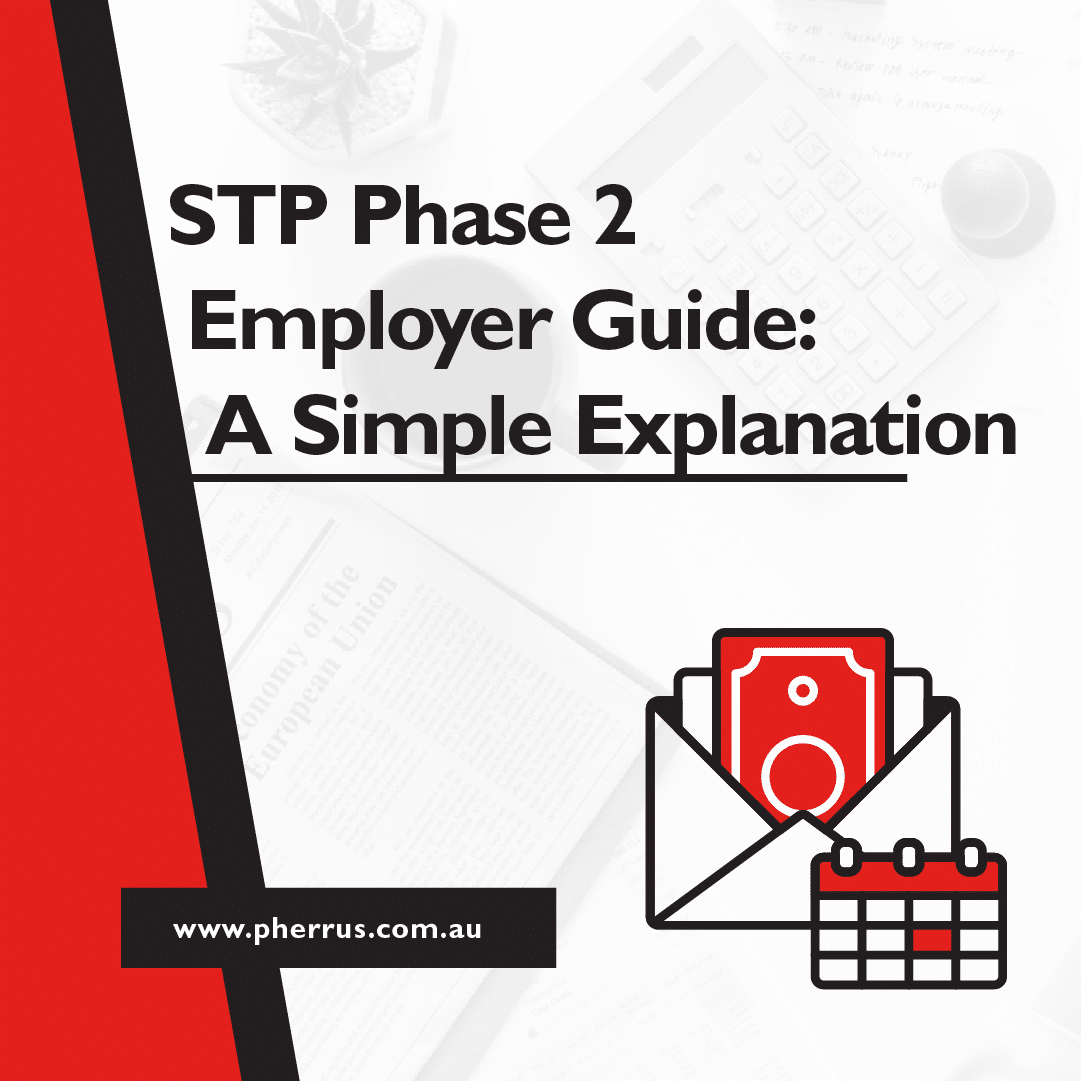Your home is more than just the place you live; it’s a goldmine quietly increasing in value.
Property equity is a powerful asset that can offer you financial security and unlock exciting opportunities in ways you might not have imagined.
What is equity, how does it work, and how can you leverage it to your financial advantage? Let us enlighten you!
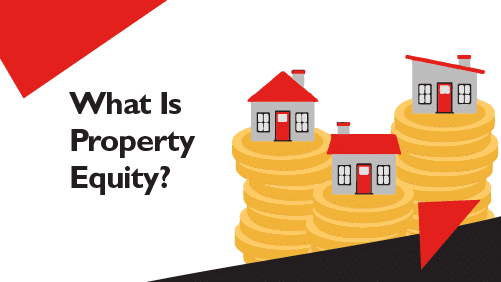
What Is Property Equity?
Property equity is the difference between the market value of your home and the amount you still owe on your mortgage.
Simply put, it’s the portion of your home that you truly own.
As you pay down your mortgage and your property’s value increases, your equity grows.
For example, let’s say you borrowed $800,000 to buy your home.
Over time, you’ve paid off $150,000 of your mortgage, and your home’s current market value is $1,000,000.
Here’s how to calculate your equity:
- $800,000 mortgage – $150,000 paid off = $350,000 still owing
- $1,000,000 current market value – $350,000 still owing = $650,000 equity
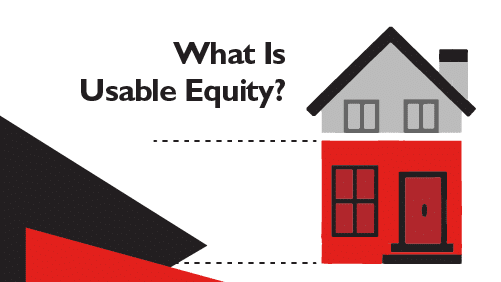
What Is Usable Equity?
It’s important to be aware that not all your home equity may be readily available for you to use.
Usable equity is the portion of your property’s equity you can borrow against.
It’s typically calculated as 80% of your home’s market value minus your outstanding mortgage balance.
This 80% limit acts as a buffer to ensure you can repay the loan, protecting both yourself and the lender.
Several factors can affect your usable equity, including changes in property market value and your remaining mortgage.
Lenders also play a big role, imposing varying limits on how much equity you can access.
Then, there’s Lenders Mortgage Insurance (LMI), which protects the lender if you default on your home loan.
This insurance is usually required if your Loan to Value Ratio (LVR) is above 80%, meaning you have less than a 20% deposit or equity in your property.
You can pay LMI as a one-time upfront fee, or it will be added to the total loan amount. This additional cost can affect your usable equity, as it reduces the net amount you can borrow.
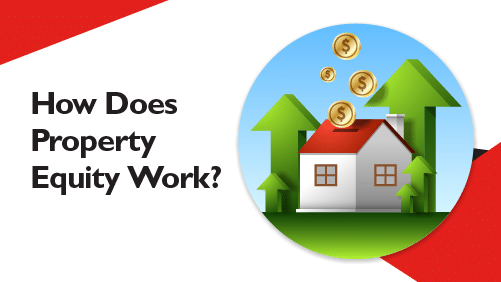
How Does Property Equity Work?
Equity in property grows over time through
- Regular mortgage payments: Each payment you make reduces your loan’s principal balance, increasing your ownership of the property and its equity.
- Additional mortgage payments: Making extra payments on your mortgage can reduce the principal faster.
- Property value appreciation: As the market value of your home increases, so does your equity.
- Home improvements: Renovations or upgrades can increase your home’s value.
However, certain factors can decrease your equity.
- Market fluctuations: If property values in your area decline, perhaps due to economic downturns or regional issues, your equity can also.
- High-interest rates: Higher interest rates can slow equity growth as more of your payments go towards interest rather than principal.
- Taking on additional debt: Borrowing more money against your home through a home equity loan or line of credit decreases your equity.
- Property damage: Significant damage to your property not covered by insurance can reduce its market value.

Why Is Property Equity Important?
Property equity serves as a valuable financial safety net.
In case of unforeseen circumstances, such as medical emergencies or job loss, you can quickly tap into your equity to access funds.
Equity also opens doors to investment opportunities.
You can use equity to purchase an investment property, start a business, or invest in other ventures, helping you diversify your financial portfolio and build wealth.
Additionally, equity offers access to credit at potentially lower interest rates.
A loan secured against your home, like a Home Equity Loan (HEL) or Home Equity Line of Credit (HELOC), can have lower interest rates than unsecured loans, making borrowing more affordable and manageable.
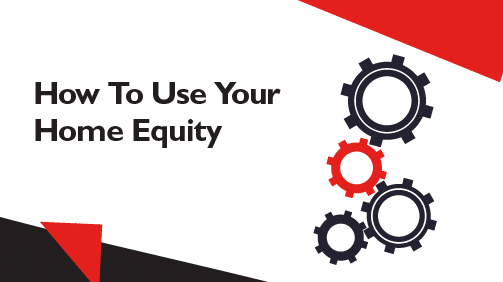
How To Use Your Home Equity
You can use your home equity to
- Finance renovations that can increase your property’s value.
- Consolidate multiple debts into one to potentially lower interest rates and reduce monthly payments.
- Put a down payment on an investment property.
- Start or expand a business venture.
- Invest in the stock market or other investment opportunities.
- Cover unexpected medical expenses or emergencies.
- Fund your children’s education.
- Take a vacation or plan a significant event like a wedding.
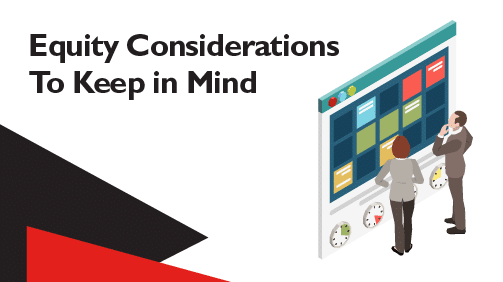
Equity Considerations To Keep in Mind
Before leveraging your property equity, it’s essential to carefully plan and understand the potential risks and implications involved.
Keep in mind
- Risks of over-leveraging: Borrowing too much against your home can lead to financial strain, especially if your income changes or unexpected expenses arise.
- Interest rate changes: Rising interest rates can increase your loan repayments, slowing down the rate at which you build equity.
- Property market value fluctuations: Decreasing property values can cause lower total equity.
- Repayment terms and conditions: How will the repayment terms and conditions of the loan against your equity affect your finances?
- Impact on your credit score: Be sure you can manage the additional debt without negatively affecting your credit score.
- Long-term financial goals: Will leveraging your home equity support or hinder your future financial plans?
- Tax implications: If you use borrowed equity to purchase an investment property, interest on the loan may be tax-deductible. And if you later sell that property for a profit, you may be subject to capital gains tax. It’s best to seek advice from a tax professional to understand how leveraging your equity may affect your tax obligations.

Grow Your Wealth With Smart Equity Strategies: Partner With Pherrus
What is equity in property?
It’s a hidden treasure in your home that grows in value over time.
Are you ready to tap into this treasure?
Whether you want to grow your wealth through investments or need to cover emergency costs, property equity could be the answer.
But how can you be sure?
Here at Pherrus, our Sydney accountants, tax agents, and tax consultants can offer reliable advice on maximising your home equity while protecting your current and future wealth.
Take advantage of our wealth creation strategies today.
Fill out this online form or call +61 (02) 9099 9109 to book an appointment at our Bella Vista office in Sydney, NSW.
FAQs
What Does Equity Mean in a House?
Equity in a house is the difference between the current market value of the property and the remaining balance on any loans or mortgages.
It represents the portion of the property actually owned.
As the mortgage is paid down and the property value increases, its equity grows.
How To Calculate Equity?
To calculate the equity in property, subtract the remaining mortgage balance from the current market value of the property.
What Is a Good Amount of Equity To Have in a House?
A good amount of equity to have in a house varies based on your financial goals and circumstances.
Most lenders require a minimum of 20% equity for refinancing or accessing equity.
For greater financial security and flexibility, many financial advisors recommend having at least 30-40% equity.
If you are nearing retirement or have significant financial goals, aiming for a higher equity percentage, even exceeding 50%, can be beneficial.


